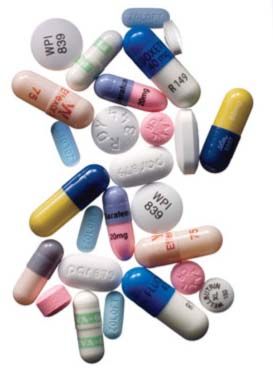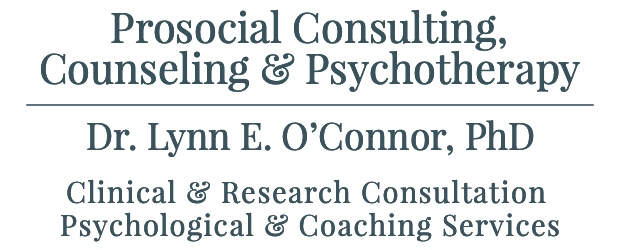The Media War on Anti-Depressants
The media, supported by science-savvy psychologists and other non-medical mental health providers, seems to be on a rampage against anti-depressant medications. Inflammatory press, well-promoted TV interviews (like the recent CBS 60 Minutes News, with Irving Kirsch) may be convincing to those predisposed to dislike and even stigmatize psychiatric medication. Confusing research is cited, claiming empirical evidence that antidepressants are no more effective than placebos (a sugar pill in other words), while carrying a greater potential for risk. Furthermore, talk therapy, usually some form of cognitive behavioral therapy (CBT) is classified as good or better than medication, although it too is perhaps no better than a placebo. So why take a chance with something so onerous as antidepressants? Side effects are highlighted and anyone following the media will be likely to turn down suggestions that they or a depressed family member might benefit from an antidepressant. It reminds me of the days when everyone went crazy for “repressed memories” of trauma that probably never happened. For starters, there’s an underlying dislike of a biological perspective, and a proclivity to return to the time-honored (in psychotherapy) emphasis on psychosocial factors, now sometimes described as “schema” or cognitive patterns (developed in childhood.)
Even some of our prestigious clinical scientists seem to be holding on to aging theories and dismissing the biopsychosocial perspective when considering what’s wrong with patients and how best to treat them. Many psychologists (or any kind of psychotherapist, including those who consider themselves more scientific) still believe in “secondary gain” (meaning people get something good out of their illnesses), and that if left to their own devices, people will hang on to an unhealthy “dependency” because they find it gratifying. In other words, even science-supported forms of treatment have hints of that old negative, antisocial and maladaptive unconscious, despite claims of dropping Freudianism and the focus on childhood. This may be the underbelly of their dislike of biological intervention, and why they’re so strongly supporting the anti-medication frenzy. Or maybe it’s just more turf warfare, be against the treatments you can’t provide, support those you offer.
It’s relatively easy to conduct outcome studies when therapy is manualized, short, and consisting of specific techniques and strategies. And CBT has a good track record. But to lean on research that may be systematically flawed in multiple ways, and to ignore biology in the etiology and treatment of mental disorders seems like a throw-back to another century. CBT may be effective, and cognitive-behavioral techniques are commonly used by many therapists, regardless of what theory they endorse. I certainly use them in a case-specific manner. But I also include thinking about disorders from a biological perspective because there is usually biological etiology and factors involved in most clinical disorders. Every case, every person I’ve ever seen has been unique, and I think most treatment providers would agree. When I think patients will benefit from medication, I refer them to a psychiatrist for assessment and recommendations. This has become difficult as we’re all exposed almost daily to the virulent anti-medication propaganda in the media, and this includes our patients. It’s hard to encourage people to consider trying a medication when they’re already frightened, given the stigma associated with psychiatric medicine And now they’re being told repeatedly that empirical research is demonstrating a that anti-depressants are ineffective. But what if these studies being touted with so much righteousness are flawed? I think they may be.

The many faces of antidepressants
The latest media frenzy, was spear-headed by Kirsch’s interview. Kirsch has been arguing for some years now that medications are no more effective than placebos (i.e., a sugar pill), except in the most severe cases of depression. It was (and is) posited that other forms of treatment—mainly CBT—are as effective in treating depression, without all the side effects and risks inherent in medications, although James Coyne, in his Psychology Today blog, http://tiny.cc/j930aw has suggested that another look at data may show us that psychotherapy is also no more effective than a placebo in treating depression. In another post http://tiny.cc/0l1yaw he goes on with a sophisticated discussion about the “antidepressants vs. placebo” studies. From another viewpoint, the clinical trial paradigm used to compare medication to placebo, and medication to CBT may be flawed, and it’s no wonder antidepressants come out looking “no better” than CBT OR placebos. In most of these outcome studies depressed people were given an SSRI (selective serotonin reuptake inhibitor). A few others investigate a medication combining an SSRI with a norepinephrine agonist (meaning increasing the available norepinephrine as well as serotonin).
But wait. Not all cases of depression are related to the serotonin or norepinephrine circuit. Depression can also be a problem in another neurotransmitter, dopamine—in which case SSRIs may not be effective—or the problem may be related to multiple circuits, and while people get SSRIs, at least in the clinical trial studies comparing medication to placebos or to CBT they are given nothing to deal with a dopamine problem (often treated with Wellbutrin at least for starters). Therefore, while it might appear that an antidepressant is no more effective than a placebo or CB treatment, this may be because perhaps one third to one half of patients are given the wrong antidepressants, or given a medicine that effects one out-of-whack circuit, while another is implicated in that specific case of depression.
With psychiatrist Thomas Lewis, first author of General Theory of Love, http://tiny.cc/goa1aw , Jack Berry and I developed a measure based on the questions a psychiatrist commonly poses to new patients, when trying to figure out what medication might be most effective. We then began an anonymous online study (still ongoing). Now, with over 1000 subjects, our results support this conclusion; depression has to be treated in a case-specific manner, as different neurotransmitters (suggested by different responses to rather ordinary questions) may be dysfunctional in different cases of depression, in different patients. No two people are identical and treatment has to be case-specific. If you run a study comparing placebo or any kind of talk therapy to medication, and you give everyone the same kind of medication, of course the medicine is going to end up looking no better than these other forms of treatment. It might even look less effective.
Are placebos as effective? Really?
The anti-medications press brings back the outcry we heard a few years ago about SSRIs being particularly risky for children and teenagers because—it was claimed—data demonstrated an increase in suicidal ideation AFTER starting on SSRIs. Several recent studies have overturned the prior conclusions, finding no particular danger of suicide in treating childhood, adolescent or adult depression with antidepressants. http://tiny.cc/gk2yaw. Furthermore, examining the numbers of teen suicides BEFORE physicians began treating depressed children/adolescents with antidepressants, it appears that the rate of suicide was significantly higher than ten years later, in the time span in which treatment (with medicine) for depressed kids began. In fact, after wider use of medicine for depressed teens, the suicide rate went down significantly.
Finally, while I am certainly no fan of the pharmaceutical industry—their profits are outrageous, their research suspect (and more)—they are only a part of the reason that the placebo vs. medication, and the CBT vs. medication studies are flawed. No one’s thinking. We know to be suspicious of docs who are paid by pharmaceutical companies to promote this or that drug, and we know there’s increasing attention to scientists declaring “financial interests” that may cloud their objectivity. What we haven’t taken seriously is the interests that clinical scientists may have in their preferred method of treatment, clouding their objectivity.
Scott Lilienfeld, http://tiny.cc/vw40aw a highly respected clinical scientist who I greatly admire, put it eloquently in a recent discussion in an online listserv of clinical scientists. He wrote:
“I’ve never quite understood why financial conflicts of interest, important to acknowledge and report as they are, are somehow inherently viewed as markedly more important a threat than personal conflicts of interest—especially those related to one’s deeply entrenched theoretical allegiances. Is it perhaps a case of what epidemiologists call “detection bias“—that the former are more readily detected and measured than the latter, which are often subjective and difficult to assess reliably? I don’t know.”
And then Lilienfeld wisely adds: “I feel as strongly as anyone about disclosing potential financial conflicts of interest. But given everything we know about confirmation bias and ego investment (and the work of the late Ziva Kunda and others on motivated reasoning), I don’t see any reason to expect biases to be less marked when it comes to personal/intellectual/emotional investment in a psychological theory or treatment as opposed to financial investment in a theory or treatment (in fact, I can think of a number of reasons, such as threats to one’s self-concept, why the former set of investments may be even more potent in its capacity to fuel confirmation bias). I realize that the literature on allegiance effects in psychotherapy outcome is still controversial vis-à-vis cause and effect (does allegiance to a therapy contribute to better outcomes for this therapy, or vice-versa?), but it at least should give us pause when placing much less weight on personal or intellectual allegiances than financial ones.”
I might take this a step further. Clinical Scientists who may also be part-time practicing clinicians may have financial as well as personal interests in their chosen theory; they benefit from direct pay from patients, and in some cases they may receive even more in terms of being Director of specialized clinics, or Principal Investigator on large studies, the studies that make it impossible to say anything about the results because everyone on medication is given the same medication, even if it doesn’t address their particular problems. We have to use some caution as we review the anti-medication freak-out in the media. It may be preventing both adults and teens in need of psychopharmacological treatment from getting it.
For media going after anti-depressants, see
http://chronicle.com/article/Are-Psychiatric-Medications/128976/?sid=cr&…
http://www.dailymail.co.uk/femail/article-2013247/Doctors-doling-happy-p…
Or more recently see
To follow me on twitter: @lynnoc
To find our lab, http://www.eparg.org
